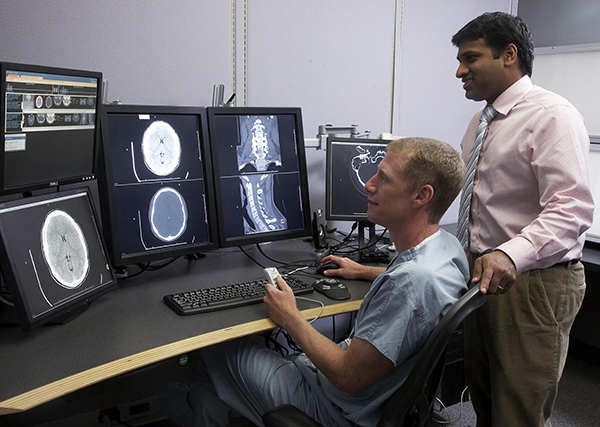Peer Review

Greensboro Radiology conducts regular peer reviews on all of our radiologists. Peer review is the most commonly used method for assessing performance in terms of medical and clinical knowledge among radiologists. Ideally, it involves the fair and transparent evaluation of performance by a physician’s peers to identify opportunities for additional education, error reduction, and self-improvement.
The key attributes of an effective method of clinical performance evaluation have been defined by the ABMS and JCAHO. Evaluation of performance in practice should reveal opportunities for quality improvement, help ensure competence, help improve individual outcomes, and provide evidence in cases of adverse and sentinel events. In addition, the peer-review process must be unbiased, fair, and balanced. Cases ideally should be selected at random to broadly represent the work performed in the radiology department. The views of the physician whose work is undergoing review, and any minority opinions, should be recorded. The evaluation process should be consistent, with all staff being aware of and adhering to established rules and procedures. The process also should be timely so as to represent the current state of performance; interpretations should be evaluated within a reasonable interval after the initial report. Moreover, peer review should be ongoing so that data can be tracked over time and analyzed to reveal trends. As with any part of the performance evaluation process, peer review should be nonpunitive, have a minimal effect on work flow, and allow easy participation.
The ACR currently requires that medical centers participate in physician peer review to obtain and maintain accreditation; only institutions and programs that specialize in mammography and stereotactic and ultrasonography-guided breast biopsy procedures are exempted. However, the ACR requirement is voluntary, and noncompliance incurs no penalty other than refusal of accreditation. The JCAHO similarly requires that all staff participate in peer review, with a continuous random review of 5% of cases for ongoing credentialing.